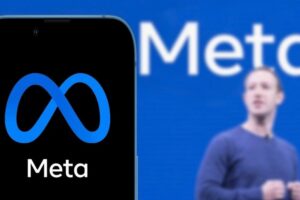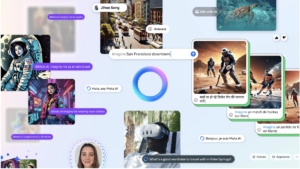James McAvoy and Tom Brady Duped by ‘Goodbye Meta AI’ Prank

The Viral Hoax About Meta and AI
A recent online trend has captured the attention of over 600,000 individuals, including prominent celebrities, who have mistakenly shared a misleading message regarding Meta’s use of user images for artificial intelligence (AI) training. This hoax, which claims to grant users the right to deny Meta access to their images, has spread rapidly across social media platforms, particularly Instagram.
Celebrities Caught in the Hoax
Several notable figures, such as actors James McAvoy and Ashley Tisdale, as well as former NFL star Tom Brady, have participated in this trend by reposting the content titled "Goodbye Meta AI." This announcement led many to believe that by sharing the post, they could protect their privacy from Meta’s AI initiatives.
The False Promise of Privacy Protection
The central assertion of this viral message is that sharing it would prevent Meta from using their personal information and public posts for AI training purposes. However, the truth is far less promising. Users who wish to prevent their data from being utilized in this way have the option to adjust their privacy settings within their account. Simply reposting the message does not have any bearing on their data protection.
Debunking the Hoax
Many sources, including Lead Stories, have branded this viral post as "false information." They are part of a network of third-party fact-checkers that work with Meta to identify and clarify misleading content. Meta has openly stated that posting such messages does not affect a user’s privacy settings. A representative from Meta emphasized, “Sharing this story does not count as a valid form of objection.”
Origin of the Trend
The roots of this hoax can be traced back to a Facebook post dated September 1, which framed the message in a somewhat different manner. The trend gained momentum significantly only when high-profile users began sharing it, leading to a surge of interest as seen in Google Trends, peaking significantly after September 24.
The Phenomenon of ‘Copypasta’
This situation is not an isolated incident; it reflects a broader issue of misinformation spreading via social media, commonly referred to as "copypasta." This term describes blocks of text that are repeatedly copied and shared online. Instances of users attempting to assert their privacy rights in public posts have been common over the past decade, often with no actual impact on their privacy.
Past Misunderstandings
Fact-checking platforms like Snopes have documented various occasions where social media users have attempted to voice their privacy rights through similar public messages, ultimately finding that such actions are ineffective. This specific case, however, stands out because of the number of celebrities who fell for the hoax.
Reactions from Other Platforms
The reaction to Meta’s announcement regarding its use of public posts for AI has sparked dialogue across various social media platforms. LinkedIn previously announced plans to utilize public content for AI training but recently decided to withdraw that plan in the UK due to growing criticism and concerns about user privacy.
The combination of celebrity influence and widespread misunderstanding about privacy settings has allowed this hoax to thrive. Consequently, it serves as a reminder of the challenges in the age of social media, where misinformation can quickly balloon into widespread belief.






